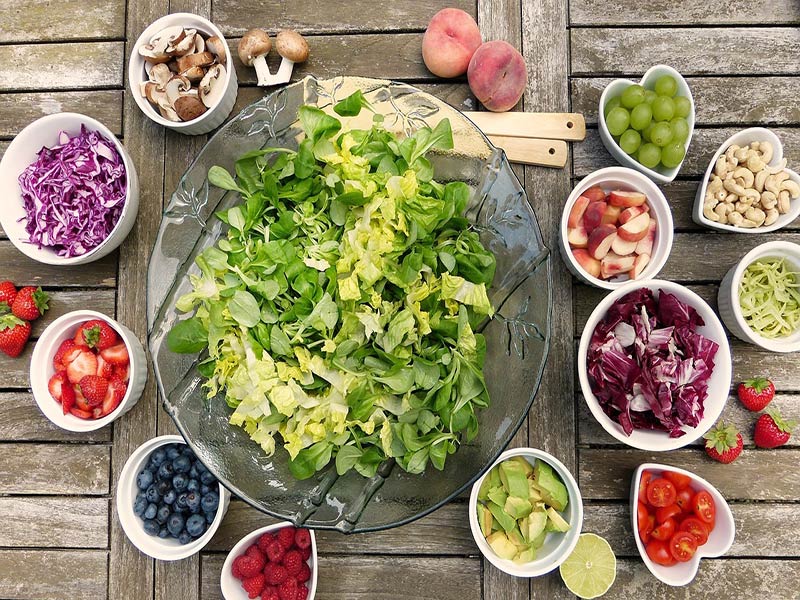
Omega-3 fats
According to research, the omega-3 fatty acids are essential for healthy functioning of the brain and nervous system. This is especially true for students, since omega-3 fats help in boosting memory, concentration, and even in relieving depression. Hence, they should be an integral part of children’s diet during their examinations. The best sources of omega-3 fats are the oily fish like salmon, mackerel, tuna, halibut, trout; seeds like flax, chia, melon seeds, sunflower also contain the omega-3 fats.
Water
One of the most important things that children easily neglect while studying is not drinking enough water. This is not a healthy habit. While studying or memorising the lessons, it is natural to get thirsty. If it is denied or neglected then it can lead to irritation and they will be unable to concentrate. Also, the brain cells requires two times more energy than other cells in the body and water provides this energy more effectively than any other substance. So students should always keep a water bottle with them while studying, satiate thirst and drink enough water. Ideally drinking 1.5 litres of water a day is recommended by many doctors.
Oatmeal
According to experts in nutrition, oats are a source of great energy which serves as a great fuel for the brains in the morning. Also, oats are an excellent source of vitamin E, B, potassium and zinc and they help the body and brain to function at its full capacity. Oatmeal is also said to keep the arteries of the heart and brain clear.
Whole grains
Most whole grains are very high in fibre, and hence it provides the children with the required energy during exam time. Whole grains such as brown rice, whole wheat and millets are also extremely good sources of glucose which the brain requires. They also contain vitamin-B complex, an essential nutrient for a healthy nervous system. Hence it improves the brain power and can help the students study for extended hours during the examinations.
Eggs
Eggs offer so much to our children and help them grow up into healthy, strong, and smart individuals. According to nutritionists, eggs are a great protein source while the egg yolks are packed with choline – an essential nutrient, which helps in memory development. Eggs are also considered to be an excellent source of iron, Vitamins A, D, E, and B12. Hence, eggs are a great way to start the day specially during exams. Above all, children can enjoy this nourishment in any form they want – boiled, omelette, a poached egg or the Indian egg bhurji.
Green Leafy Vegetables
Green leafy vegetables and dark green vegetables like broccoli are rich in vitamins A and K that slow down mental deterioration. They also improve cognitive function. Hence they are highly recommended for students. Greens are also a rich source of calcium, beta carotene and vitamin C and vitamin A which is specifically good for eyesight.
Amla or Indian Gooseberries
Amla or Indian gooseberries are rich in antioxidants which help in fighting the free radicals responsible for breaking down brain cells in the body. Also they are very rich in vitamin C which helps in the production of norepinephrine — a neurotransmitter that improves the brain activity. The iron rich content in Amla facilitates oxygen transportation and prevents brain degeneration. Hence students can snack on Indian gooseberries not only during examinations but throughout their academic year.
Fresh fruits
Students should regularly consume fresh fruits of all kinds during exams and even otherwise. Memory-boosting fruits are the apples and plums considered to contain quercetin — an antioxidant that fights the decline in mental skills. While the berries are considered to be rich in antioxidants as well vitamins which can significantly improve memory as well as learning capacity. They also protect the brain from degeneration and oxidative stress.
Green tea and natural fluids
Students should as much as possible avoid drinking coffee. Try healthier natural fluids instead. Green tea is a good alternative to the high-caffeine options since it provides antioxidants and it boosts the students concentration. Foods with high water content such as coconut water, lassi, buttermilk, chhaas, juices, soups are not only healthy but they will keep you hydrated. According to research, natural fluids help in mental alertness, concentration and also prevent headaches.
Nuts and seeds
Nuts and seeds have proteins, essential fatty acids, vitamins and minerals and which can improve brain functioning and keep child’s nervous system healthy. Nuts like walnut and peanuts are rich in vitamin E and can protect nervous membranes and also help ward off mental ailments like Alzheimer’s disease. Nuts also have thiamine — also called vitamin B1 to help the brain and nervous system use glucose for energy. Hence children should opt for nuts and seeds as healthy alternatives to high calorie deep fried snacks.
Also read: Packing a healthy lunch box